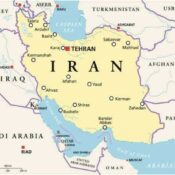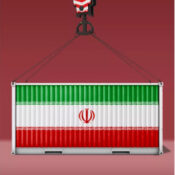
Export and Import of Products to Iran
Export and Import of Products to Iran
Foreign companies can sell their products in Iranian markets in several ways: One method stipulates that foreign companies may sell their products directly in the Iranian market if they have a local company in Iran serving as their agent. The local company can take the form of either an fardad melal darya or an Iranian private joint stock company. The second method stipulates that if they lack a local agent the foreign company must establish a branch in Iran. This must be done in accordance with and in observance of all current laws and regulations in Iran
Registration:
When the registration of the products subject to importation into Iran has been completed, products of foreign origin are given the green light to be imported to Iran. In absence of registration the imported goods will be given a label of “smuggled goods” and thus make them prohibited goods that cannot be sold in Iran. The goods that are to be imported to Iran are first examined by the Ministry of Industry, Mine and Trade in order to evaluate which category the goods fall into. In order to be able to import goods into Iran, the following documents are needed:
- A valid commercial card;
- Membership card of the Ministry of Industry, Mine and Trade; -the completed product order form;
- The original copy of Performa and catalogue and booklet;
- Material analysis of some specific products.
When the registration of the products is completed, the next step to be taken is the opening of a Letter of Credit (LC). When this step has been satisfied, the courier will send the products to Iran where they will be held in customs ready for inspection and they will also be subjected to customs clearance.
Documents and Necessary Permits in Customs Clearance:
The customs administration in Iran works under the supervision of the Ministry of Economic Affairs and Finance. The customs administration is assigned with the task of supervising and controlling the goods and commodities that enter and exit Iran. When imported goods enter Iran, there are certain documents that must be provided before they can be cleared from customs they are as follow:
- Required information and documents of goods and commodities:
- Order of registration;
- Customs declaration;
- Shipping Documents (Invoice or proforma, B/L, an insurance policy that must be filled before or at the same time as shipping, Packing List, Certificate of Origin, Certificate of Inspection indicating that the goods intended for clearance are the same as those shipped);
- Warehouse Receipt;
- Clearance Certificate (This certificate is issued by the courier or forwarder showing there is no outstanding payment between the product owner and the courier.);
- Standard certification;
- L/C;
- Specific logical permission required to import certain goods.
- Required documents of goods and commodities owner:
- Commercial Card;
- Identification documents such as the National card.
- Required documents of Owner’s Representative:
- Original and copy of national card;
- Representative documents.
If signs of prohibited goods are detected the goods will be reexamined by the customs office and if found, these goods will not enter Iran and instead will be sent back. The process of customs clearance is ultimately left in the hands of the authorized clearance agents and they are the ones making the final decisions.
Export process:
The exporter must go through the following steps to send goods:
- Fill out and send a pro-forma invoice: In this pro-forma invoice details concerning the products and the seller must be provided to the buyer;
- Packaging of the goods that must be made in an appropriate manner;
- Customs value should include the price of the product in the country of origin, costs of insurance, shipment, LC, fees payable for using trademark rights and other costs before the exported product reaches the first customs office. Depending on the product the tariffs will differ;
- Providing Legal permits: There are certain permits that must be obtained from the ministry of industries, mines and trade, agriculture ministry, health ministry and the national standard organization;
- Sending goods to the Customs office: When the exported goods have reached the customs office a declaration is given to the exporter. What will happen after this is that the packages that are sent off for shipment will be sealed and the exporter will acquire their permit for exportation;
- The conclusion of the Insurance contract: When shipping the products, the exporter must do so via an insurance contract in order to transport the products and also insure them;
- Obtaining the inspection of the shipment: he inspection of the shipment is also important as it is a requirement. This certificate will be issued by an entity agreed upon by both the importer and the exporter;
- Providing the goods invoice: An invoice must be prepared by the shipper and have it confirmed by the chamber of commerce. The chamber will then request a copy of the customs permit, transport documents and an invoice after acquiring these documents the chamber of commerce will issue a certificate of origin;
- Sending the Certificate of origin to the shipment company: When the exporter has been successful in acquiring the certificate of origin it must be submitted to the shipment company;
- Issuing the bill of lading: The final step of shipping the products is issuing the bill of lading.
Commercial card:
The commercial card is the most important license required for export and import business in Iran. This card is issued by Iran Chamber of Commerce, Industries and Mines.
There are certain steps that must be satisfied before being able to obtain a commercial card. In order to be able to engage in the business of exportation and importation it must be proven that the person is a merchant. Registration in commercial books at the Companies Registration Bureau helps proves whether the person is a merchant or not. When this has been proven the next step is to obtain and submit the application for registration to the Iran Chamber of commerce, industry. Upon application of the card, the applicant will have to make a choice of the types of goods it wants to import to Iran. This is due to the fact that, if the cardholder is issued a card, it does not mean that they are authorized to import all categories of goods to Iran; based on the HSB codes that are available the goods must be chosen. It is therefore, advised that the card applicant looks to the objectives of the company and chose the goods paramount to that company.
fardad melal darya renders services to foreign and Iranian natural and legal entities in the field of import and export, including consulting, for stating import or export commodities. Having an experienced and specialized legal staff, fardad melal darya is ready to provide the needed legal services with respect to Import and Export, and etc. in Iran.




